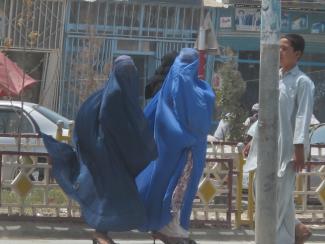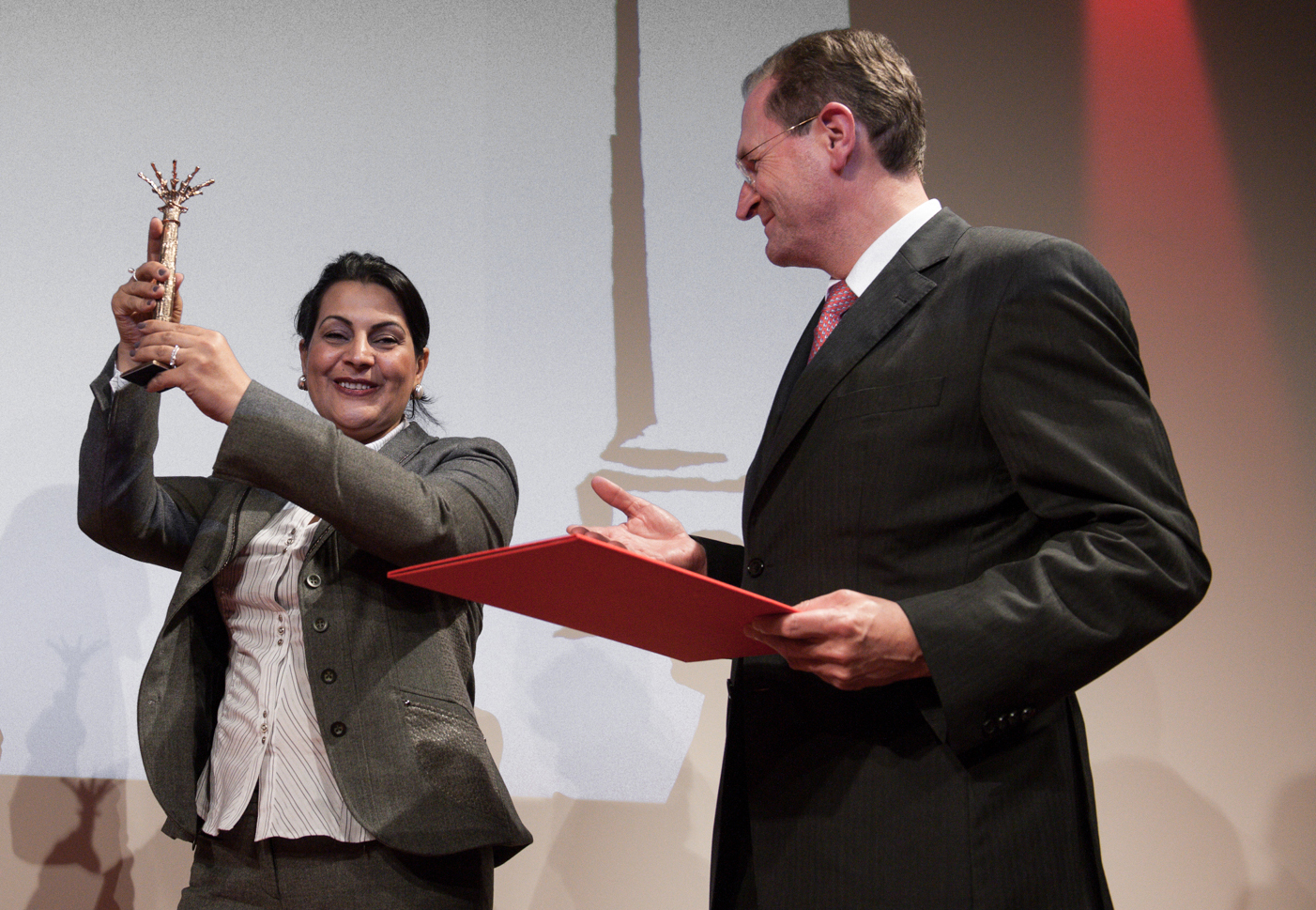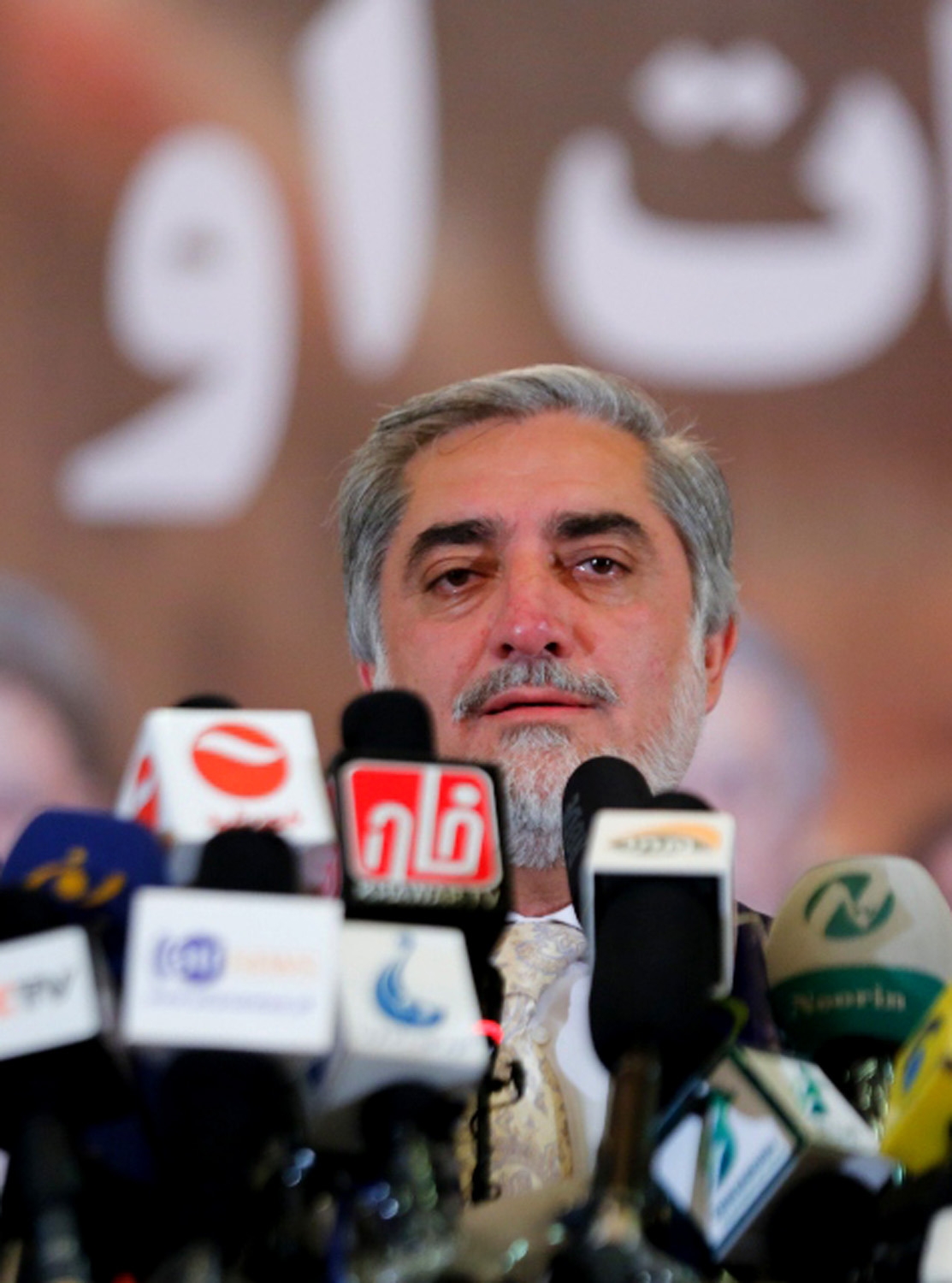Development cooperation
Fewer soldiers, more jobs

"This is a new chapter in our multi-year cooperation with Afghanistan," says Gerd Müller, Germany’s minister for economic cooperation and development. "The ISAF will leave, but we are staying." He promises further support, especially in the areas of education and vocational training, energy supply, sustainable economic development and water infrastructure.
Timing matters. Afghanistan will hold presidential elections on 5 April, and the new head of state will have to lead the country into an era without international military assistance. The conflict with the Taliban looms large. The new democratic government will have to demonstrate progress in terms of economic development. To achieve such progress, it needs foreign aid.
Germany is currently the third most important donor for Afghanistan. The Federal Republic has invested some 2 billion euro in development cooperation with the strife-torn country since 2002. About 75 % of that money was from the BMZ budget.
Poverty is still a huge issue in Afghanistan. Two thirds of the people do not enjoy food security. The UNDP’s Human Development Index reveals Afghanistan to be 175th of 187 countries. "It will prove impossible to build a stable polity in Afghanistan so long as social indicators stay at these alarming levels," warns Peter Neher, the president of Caritas Germany, a Catholic charity. In his view it is essential to make people see that they are better off without the Taliban even once ISAF has left. He insists that the international community must continue humanitarian support.
Germany is prepared to assume responsibility. The BMZ recently published the draft of a new Afghanistan strategy for the years 2014 to 2017. It states that German efforts will focus on specific areas. One is the promotion of vocational training and employment for young people, particularly in rural areas, which is where the Taliban are recruiting young fighters. The idea is to create prospects beyond armed opposition in the long run.
As was the case so far, German development cooperation will continue to focus on Afghanistan’s six northern provinces and Kabul, the capital city. The BMZ paper stresses that efforts matter most in the rural areas where there is a general lack of state institutions.
A core topic of the new strategy is justice and good governance. The BMZ intends to support institutions that ensure the rule of law. The ministry argues that stemming corruption and despotism is probably the most visible contribution to convincing the people of democratic rule. The BMZ wants to encourage faith in state institutions and democracy in the long run.
The BMZ is aware that standards of life must improve too. Energy supply is a relevant issue. Only 28 % of Afghanistan’s population has access to electric power. Germany plans to invest in decentralised power generation in Afghanistan, expanding power supply in an environment-friendly manner and laying the foundation for the kind of economic growth that leads to political stability long term. Improving Afghanistan’s water infrastructure is also on the BMZ agenda.
Not much of the new infrastructure will be built by the time the ISAF forces leave, but the BMZ is in it for the long haul, says Minister Müller: "Cooperation with fragile states like Afghanistan requires strategic patience and stamina."
Sheila Mysorekar










